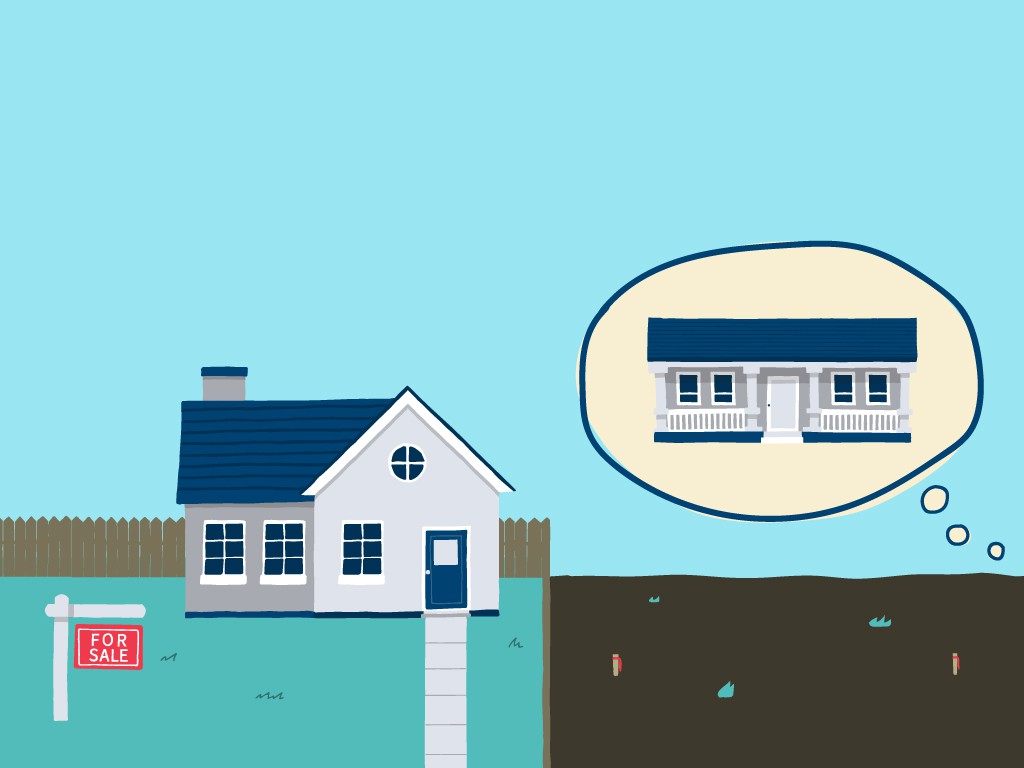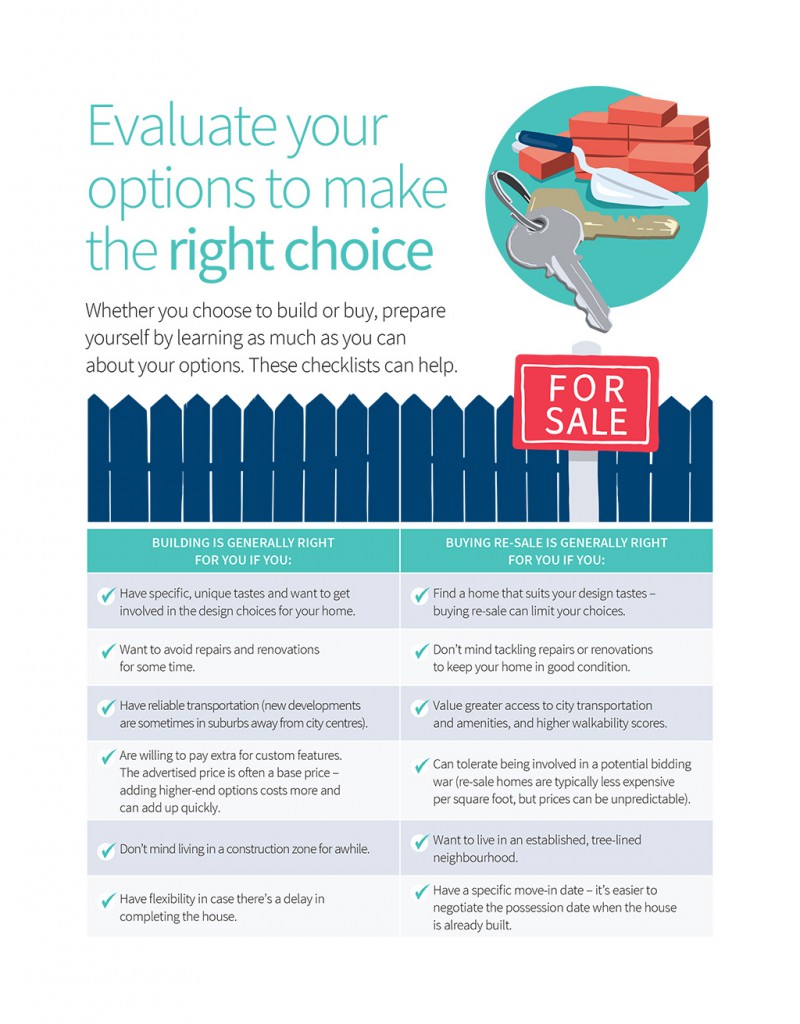It’s the big question current and aspiring homeowners ask themselves about their house: To build or not to build? How do you know what’s right for you?
Choosing your next – or your first – home involves making a multitude of decisions. Primarily, you must make a choice between buying re-sale (an existing home that has had a previous owner) or working with a developer to build a new, custom home. That decision depends on a number of factors, including your lifestyle. Then, you must choose whether or not to use a real estate agent. And finally, you must determine what kind of mortgage you’ll need.
Considering these factors may give you a sense of whether buying or building is right for you.
So you’ve decided to build…
If you’ve carefully weighed the pros and cons of both options and decided that building a new home is the choice that best fits your wants, wallet and lifestyle, remember to keep these things in mind.
Neighbourhood associations
Many new developments have neighbourhood homeowners’ associations, which can impose regulations that define your property’s appearance. Living in the neighbourhood may require you to pay a membership fee, or fines if you violate a regulation. Examples may include restrictions on exterior paint or finishes, structures such as sheds, vegetation and landscaping, and even outdoor decor.
Utilities and services
Your neighbourhood is under development. This means there could be services and utilities that are not yet available to you or are not fully functional. Does your neighbourhood have adequate cell phone or cable service? What about public transit and snow removal? And, perhaps more importantly, is your new home outside the delivery area for your favourite pizza place or 24-hour plumber?
Protecting yourself
Remember the agent selling the home is working for the builder – not for you. Protect yourself by knowing your rights or hiring your own agent. Realtors can also help advise you on the importance of a home inspection – yes, even brand new homes can have defects. Make sure your new home comes with a warranty backed by insurance, and understand what the agreement covers, and what it doesn’t.
Upgrades and cost overruns
Set a realistic budget for your new home build and be aware that, more often than not, the builder is quoting prices on a base model. Upgrades such as granite and quartz countertops or hardwood flooring will cost you more.
So you’ve decided to buy…
If you’ve chosen to buy a re-sale home, you still have one important decision to make. Will you engage the services of a real estate agent or go it alone? As a general rule, the home seller is responsible for paying the real estate fees, and they have likely built this cost into the final sale price they are willing to accept.
Skipping the services of a real estate professional is becoming more popular thanks to services like ComFree and Property Guys. Increasingly, people are turning to the Internet and mobile apps to aid them in their house hunt.
The benefits of doing it yourself
Skipping the services of a real estate professional is becoming more popular thanks to services like ComFree and Property Guys. Increasingly, people are turning to the Internet and mobile apps to aid them in their house hunt. Private selling agencies are even offering additional benefits to buyers such as paying them part of the selling broker’s commission, providing consultation services, and completing the paperwork. Many buyers and sellers no longer see the need for a real estate agent. (Though we strongly recommend you engage the services of a lawyer when drawing up the documents of a sale, and talk to us before making any mortgage decisions!)
Choosing a real estate agent
Doing it yourself may be growing in popularity, but most buyers and sellers continue to use the services of a real estate professional. Realtors are knowledgeable and cost the buyer little to nothing. Sellers, who pay the fees, typically appreciate the support and expertise provided during the selling process.
Here’s how to pick a good real estate agent:
- Meet with a number of agents and interview them – rapport is just as important as credentials.
- Get proof of their credentials – every realtor must be registered with their provincial board.
- Talk to their recent clients – were they satisfied with the service?
- Review their current listings – do they specialize in your neighbourhood, price range, or type of house?


